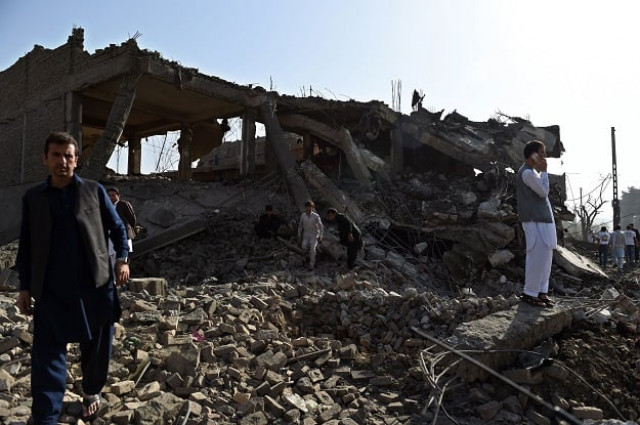Kabul attacks
Death of Mullah Omar, whenever or wherever that happened, has provoked a churn that has no obvious ending

Afghan residents inspect a damaged building following a powerful truck bomb explosion in Kabul on August 7, 2015. PHOTO: AFP

Decoding Taliban intentions with such attacks is imprecise, but at the least they are designed to demonstrate that they remain a potent and effective fighting force, capable of mounting successful operations in the heart of the capital city. A clear message has been delivered to the civilian population and the Afghan fighting forces that oppose the Taliban. They are facing their first fighting season without the support of Nato troops and this at a time when the Taliban are being forced into a leadership contest that is inevitable, now that the death of Mullah Omar has been revealed.
The contest was deferred, and now lays bare splits in the Taliban ranks that could be either opportunity or threat. A Taliban, divided and consumed by internal conflicts and struggles for primacy, is a Taliban weakened and offers a chance to drive any number of wedges. Failure to capitalise on that opportunity allows the Afghan Taliban time to put their house in order and return to the fray re-energised. Effectively, the peace process is paused while the leadership contest is resolved one way or the other. There is unlikely to be a swift or painless outcome.
Published in The Express Tribune, August 10th, 2015.
Like Opinion & Editorial on Facebook, follow @ETOpEd on Twitter to receive all updates on all our daily pieces.















COMMENTS
Comments are moderated and generally will be posted if they are on-topic and not abusive.
For more information, please see our Comments FAQ